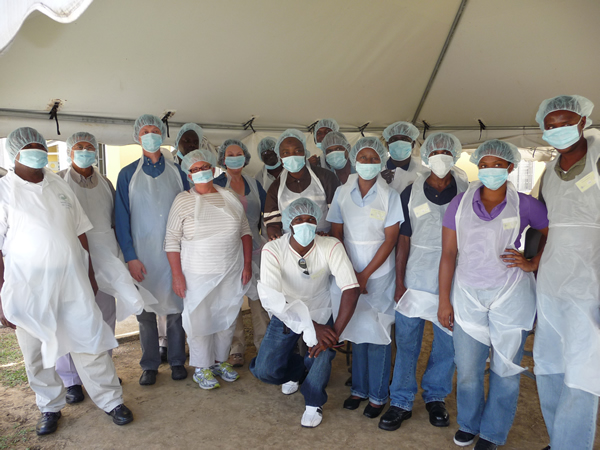
Experts from NRI continued their training of early career scientists last week, as part of the European Union (EU) African, Caribbean and Pacific (ACP) Science and Technology Project previously introduced, this time in Port of Spain, Trinidad. The Caribbean Agricultural Research and Development Institute (CARDI) hosted the training in Trinidad, in collaboration with NRI and with support from the International Society of Tropical Root Crops (ISTRC) who now have over 400 registered root and tuber crop scientists.
The Regional Training is part of a series that will train 450 early career scientists from ACP countries with the aim of strengthening research on root and tuber crops, which are important to the food security and incomes of a great many people.
Each session takes 5 days and covers research proposal preparation, research methods and intellectual property rights. This was the second training in the Caribbean; an earlier meeting in Barbados took place in 2011.
With the support and collaboration of the established ISTRC, it is intended that the training will be sustainable in the long-term. The ISTRC is an international organisation which has symposia every 3 years with up to 200 scientists attending.
The meeting was also an opportunity for NRI and the Caribbean Agriculture Research and Development Institute (CARDI) to jointly sign a Memorandum of Understanding (MOU) to signal the intention that the two organisations will work closely with each other.
Dr Keith Tomlins, Reader in Food Safety and Quality at NRI and project leader of the EU ACP project, said "This is a really exciting opportunity for root and tuber crop scientists in the Caribbean Region and the feedback from the trainees has been really positive which helps to spur all of us on. We really enjoy our time with partners from the Caribbean, Nigeria, Uganda, Zambia and the ISTRC Councillor for the Pacific. Together we can help improve the lives of people who rely on root and tuber crops for food security, and by being part of the global community of practice we can share our best practice and ideas".

